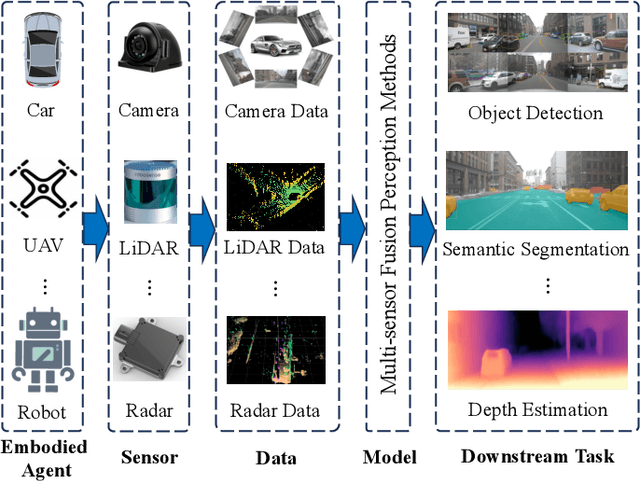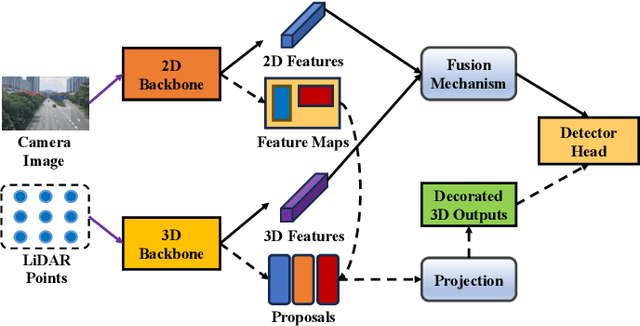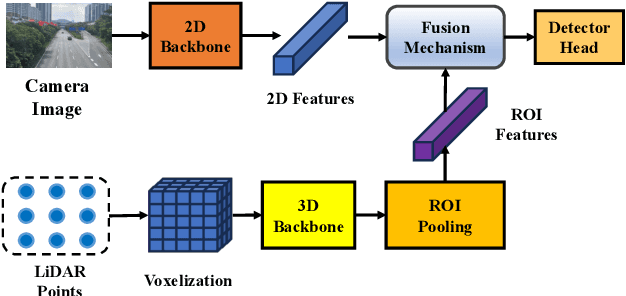Zhenya Huang
UniCog: Uncovering Cognitive Abilities of LLMs through Latent Mind Space Analysis
Jan 25, 2026Abstract:A growing body of research suggests that the cognitive processes of large language models (LLMs) differ fundamentally from those of humans. However, existing interpretability methods remain limited in explaining how cognitive abilities are engaged during LLM reasoning. In this paper, we propose UniCog, a unified framework that analyzes LLM cognition via a latent mind space. Formulated as a latent variable model, UniCog encodes diverse abilities from dense model activations into sparse, disentangled latent dimensions. Through extensive analysis on six advanced LLMs, including DeepSeek-V3.2 and GPT-4o, we reveal a Pareto principle of LLM cognition, where a shared reasoning core is complemented by ability-specific signatures. Furthermore, we discover that reasoning failures often manifest as anomalous intensity in latent activations. These findings opens a new paradigm in LLM analysis, providing a cognition grounded view of reasoning dynamics. Finally, leveraging these insights, we introduce a latent-informed candidate prioritization strategy, which improves reasoning performance by up to 7.5% across challenging benchmarks. Our code is available at https://github.com/milksalute/unicog.
A Survey on Deep Text Hashing: Efficient Semantic Text Retrieval with Binary Representation
Oct 31, 2025



Abstract:With the rapid growth of textual content on the Internet, efficient large-scale semantic text retrieval has garnered increasing attention from both academia and industry. Text hashing, which projects original texts into compact binary hash codes, is a crucial method for this task. By using binary codes, the semantic similarity computation for text pairs is significantly accelerated via fast Hamming distance calculations, and storage costs are greatly reduced. With the advancement of deep learning, deep text hashing has demonstrated significant advantages over traditional, data-independent hashing techniques. By leveraging deep neural networks, these methods can learn compact and semantically rich binary representations directly from data, overcoming the performance limitations of earlier approaches. This survey investigates current deep text hashing methods by categorizing them based on their core components: semantic extraction, hash code quality preservation, and other key technologies. We then present a detailed evaluation schema with results on several popular datasets, followed by a discussion of practical applications and open-source tools for implementation. Finally, we conclude by discussing key challenges and future research directions, including the integration of deep text hashing with large language models to further advance the field. The project for this survey can be accessed at https://github.com/hly1998/DeepTextHashing.
Pruning Long Chain-of-Thought of Large Reasoning Models via Small-Scale Preference Optimization
Aug 13, 2025



Abstract:Recent advances in Large Reasoning Models (LRMs) have demonstrated strong performance on complex tasks through long Chain-of-Thought (CoT) reasoning. However, their lengthy outputs increase computational costs and may lead to overthinking, raising challenges in balancing reasoning effectiveness and efficiency. Current methods for efficient reasoning often compromise reasoning quality or require extensive resources. This paper investigates efficient methods to reduce the generation length of LRMs. We analyze generation path distributions and filter generated trajectories through difficulty estimation. Subsequently, we analyze the convergence behaviors of the objectives of various preference optimization methods under a Bradley-Terry loss based framework. Based on the analysis, we propose Length Controlled Preference Optimization (LCPO) that directly balances the implicit reward related to NLL loss. LCPO can effectively learn length preference with limited data and training. Extensive experiments demonstrate that our approach significantly reduces the average output length by over 50\% across multiple benchmarks while maintaining the reasoning performance. Our work highlights the potential for computationally efficient approaches in guiding LRMs toward efficient reasoning.
A Survey of Multi-sensor Fusion Perception for Embodied AI: Background, Methods, Challenges and Prospects
Jun 24, 2025



Abstract:Multi-sensor fusion perception (MSFP) is a key technology for embodied AI, which can serve a variety of downstream tasks (e.g., 3D object detection and semantic segmentation) and application scenarios (e.g., autonomous driving and swarm robotics). Recently, impressive achievements on AI-based MSFP methods have been reviewed in relevant surveys. However, we observe that the existing surveys have some limitations after a rigorous and detailed investigation. For one thing, most surveys are oriented to a single task or research field, such as 3D object detection or autonomous driving. Therefore, researchers in other related tasks often find it difficult to benefit directly. For another, most surveys only introduce MSFP from a single perspective of multi-modal fusion, while lacking consideration of the diversity of MSFP methods, such as multi-view fusion and time-series fusion. To this end, in this paper, we hope to organize MSFP research from a task-agnostic perspective, where methods are reported from various technical views. Specifically, we first introduce the background of MSFP. Next, we review multi-modal and multi-agent fusion methods. A step further, time-series fusion methods are analyzed. In the era of LLM, we also investigate multimodal LLM fusion methods. Finally, we discuss open challenges and future directions for MSFP. We hope this survey can help researchers understand the important progress in MSFP and provide possible insights for future research.
Advancing Multimodal Reasoning Capabilities of Multimodal Large Language Models via Visual Perception Reward
Jun 08, 2025Abstract:Enhancing the multimodal reasoning capabilities of Multimodal Large Language Models (MLLMs) is a challenging task that has attracted increasing attention in the community. Recently, several studies have applied Reinforcement Learning with Verifiable Rewards (RLVR) to the multimodal domain in order to enhance the reasoning abilities of MLLMs. However, these works largely overlook the enhancement of multimodal perception capabilities in MLLMs, which serve as a core prerequisite and foundational component of complex multimodal reasoning. Through McNemar's test, we find that existing RLVR method fails to effectively enhance the multimodal perception capabilities of MLLMs, thereby limiting their further improvement in multimodal reasoning. To address this limitation, we propose Perception-R1, which introduces a novel visual perception reward that explicitly encourages MLLMs to perceive the visual content accurately, thereby can effectively incentivizing both their multimodal perception and reasoning capabilities. Specifically, we first collect textual visual annotations from the CoT trajectories of multimodal problems, which will serve as visual references for reward assignment. During RLVR training, we employ a judging LLM to assess the consistency between the visual annotations and the responses generated by MLLM, and assign the visual perception reward based on these consistency judgments. Extensive experiments on several multimodal reasoning benchmarks demonstrate the effectiveness of our Perception-R1, which achieves state-of-the-art performance on most benchmarks using only 1,442 training data.
Empowering Economic Simulation for Massively Multiplayer Online Games through Generative Agent-Based Modeling
Jun 05, 2025Abstract:Within the domain of Massively Multiplayer Online (MMO) economy research, Agent-Based Modeling (ABM) has emerged as a robust tool for analyzing game economics, evolving from rule-based agents to decision-making agents enhanced by reinforcement learning. Nevertheless, existing works encounter significant challenges when attempting to emulate human-like economic activities among agents, particularly regarding agent reliability, sociability, and interpretability. In this study, we take a preliminary step in introducing a novel approach using Large Language Models (LLMs) in MMO economy simulation. Leveraging LLMs' role-playing proficiency, generative capacity, and reasoning aptitude, we design LLM-driven agents with human-like decision-making and adaptability. These agents are equipped with the abilities of role-playing, perception, memory, and reasoning, addressing the aforementioned challenges effectively. Simulation experiments focusing on in-game economic activities demonstrate that LLM-empowered agents can promote emergent phenomena like role specialization and price fluctuations in line with market rules.
CogMath: Assessing LLMs' Authentic Mathematical Ability from a Human Cognitive Perspective
Jun 04, 2025Abstract:Although large language models (LLMs) show promise in solving complex mathematical tasks, existing evaluation paradigms rely solely on a coarse measure of overall answer accuracy, which are insufficient for assessing their authentic capabilities. In this paper, we propose \textbf{CogMath}, which comprehensively assesses LLMs' mathematical abilities through the lens of human cognition. Specifically, inspired by psychological theories, CogMath formalizes human reasoning process into 3 stages: \emph{problem comprehension}, \emph{problem solving}, and \emph{solution summarization}. Within these stages, we investigate perspectives such as numerical calculation, knowledge, and counterfactuals, and design a total of 9 fine-grained evaluation dimensions. In each dimension, we develop an ``\emph{Inquiry}-\emph{Judge}-\emph{Reference}'' multi-agent system to generate inquiries that assess LLMs' mastery from this dimension. An LLM is considered to truly master a problem only when excelling in all inquiries from the 9 dimensions. By applying CogMath on three benchmarks, we reveal that the mathematical capabilities of 7 mainstream LLMs are overestimated by 30\%-40\%. Moreover, we locate their strengths and weaknesses across specific stages/dimensions, offering in-depth insights to further enhance their reasoning abilities.
MGS3: A Multi-Granularity Self-Supervised Code Search Framework
May 30, 2025Abstract:In the pursuit of enhancing software reusability and developer productivity, code search has emerged as a key area, aimed at retrieving code snippets relevant to functionalities based on natural language queries. Despite significant progress in self-supervised code pre-training utilizing the vast amount of code data in repositories, existing methods have primarily focused on leveraging contrastive learning to align natural language with function-level code snippets. These studies have overlooked the abundance of fine-grained (such as block-level and statement-level) code snippets prevalent within the function-level code snippets, which results in suboptimal performance across all levels of granularity. To address this problem, we first construct a multi-granularity code search dataset called MGCodeSearchNet, which contains 536K+ pairs of natural language and code snippets. Subsequently, we introduce a novel Multi-Granularity Self-Supervised contrastive learning code Search framework (MGS$^{3}$}). First, MGS$^{3}$ features a Hierarchical Multi-Granularity Representation module (HMGR), which leverages syntactic structural relationships for hierarchical representation and aggregates fine-grained information into coarser-grained representations. Then, during the contrastive learning phase, we endeavor to construct positive samples of the same granularity for fine-grained code, and introduce in-function negative samples for fine-grained code. Finally, we conduct extensive experiments on code search benchmarks across various granularities, demonstrating that the framework exhibits outstanding performance in code search tasks of multiple granularities. These experiments also showcase its model-agnostic nature and compatibility with existing pre-trained code representation models.
CoderAgent: Simulating Student Behavior for Personalized Programming Learning with Large Language Models
May 27, 2025Abstract:Personalized programming tutoring, such as exercise recommendation, can enhance learners' efficiency, motivation, and outcomes, which is increasingly important in modern digital education. However, the lack of sufficient and high-quality programming data, combined with the mismatch between offline evaluation and real-world learning, hinders the practical deployment of such systems. To address this challenge, many approaches attempt to simulate learner practice data, yet they often overlook the fine-grained, iterative nature of programming learning, resulting in a lack of interpretability and granularity. To fill this gap, we propose a LLM-based agent, CoderAgent, to simulate students' programming processes in a fine-grained manner without relying on real data. Specifically, we equip each human learner with an intelligent agent, the core of which lies in capturing the cognitive states of the human programming practice process. Inspired by ACT-R, a cognitive architecture framework, we design the structure of CoderAgent to align with human cognitive architecture by focusing on the mastery of programming knowledge and the application of coding ability. Recognizing the inherent patterns in multi-layered cognitive reasoning, we introduce the Programming Tree of Thought (PTOT), which breaks down the process into four steps: why, how, where, and what. This approach enables a detailed analysis of iterative problem-solving strategies. Finally, experimental evaluations on real-world datasets demonstrate that CoderAgent provides interpretable insights into learning trajectories and achieves accurate simulations, paving the way for personalized programming education.
Retrieval Augmented Generation Evaluation in the Era of Large Language Models: A Comprehensive Survey
Apr 21, 2025



Abstract:Recent advancements in Retrieval-Augmented Generation (RAG) have revolutionized natural language processing by integrating Large Language Models (LLMs) with external information retrieval, enabling accurate, up-to-date, and verifiable text generation across diverse applications. However, evaluating RAG systems presents unique challenges due to their hybrid architecture that combines retrieval and generation components, as well as their dependence on dynamic knowledge sources in the LLM era. In response, this paper provides a comprehensive survey of RAG evaluation methods and frameworks, systematically reviewing traditional and emerging evaluation approaches, for system performance, factual accuracy, safety, and computational efficiency in the LLM era. We also compile and categorize the RAG-specific datasets and evaluation frameworks, conducting a meta-analysis of evaluation practices in high-impact RAG research. To the best of our knowledge, this work represents the most comprehensive survey for RAG evaluation, bridging traditional and LLM-driven methods, and serves as a critical resource for advancing RAG development.
 Add to Chrome
Add to Chrome Add to Firefox
Add to Firefox Add to Edge
Add to Edge